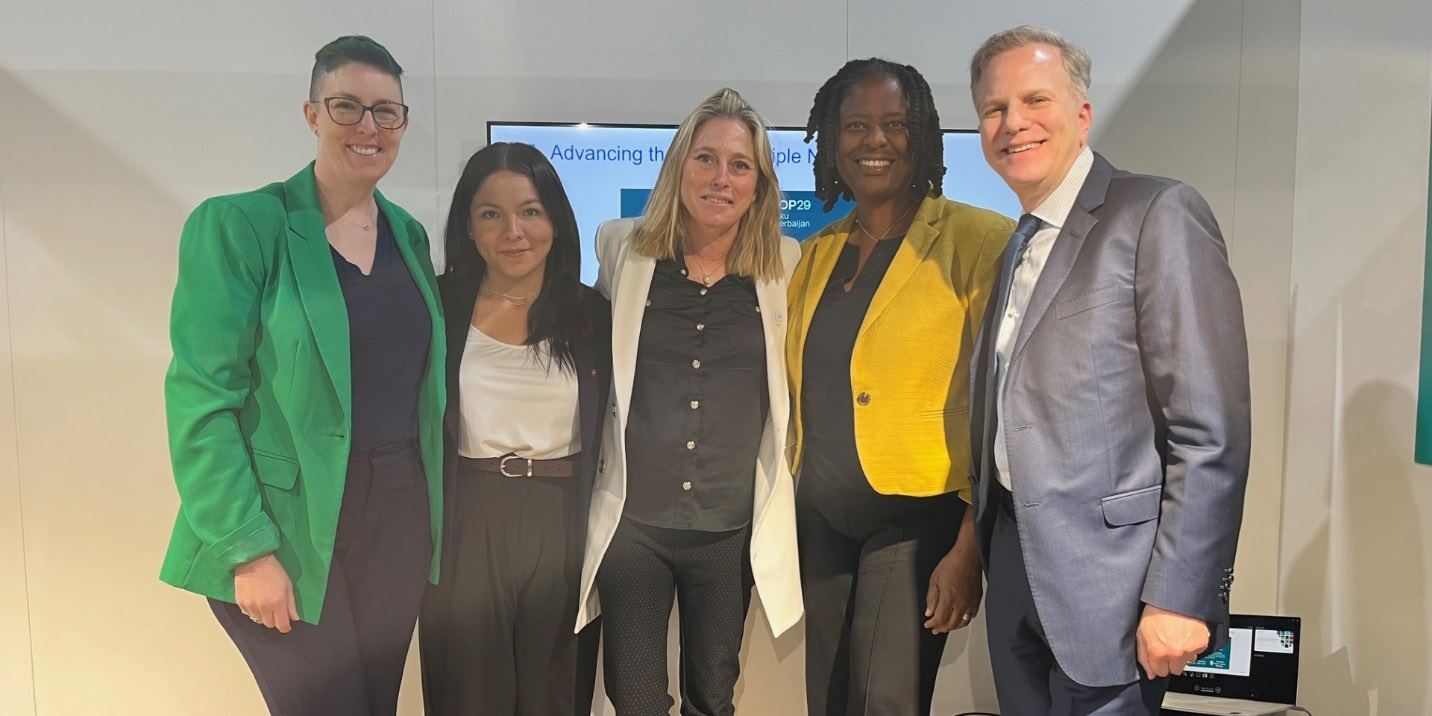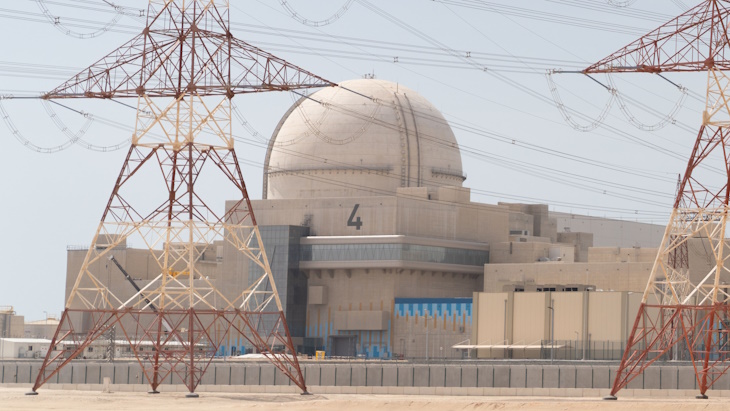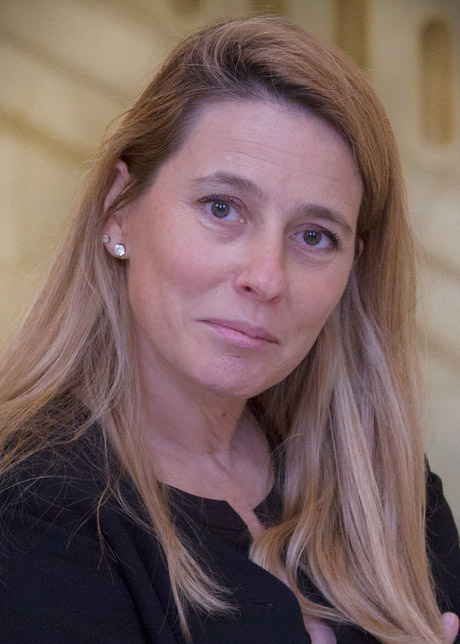ANS’s COP29 Week 1 delegation were, from left, Gale Hauck, Shirly Rodriguez, Lisa Marshall, and Seth Grae, pictured here with WNA director general Sama Bilbao y León (center). (Photo: Seth Grae)
COP29 was good for nuclear energy, but not so good for anything else.
That was one of Seth Grae’s takeaways from this year’s Conference of the Parties—or, United Nations Framework Convention on Climate Change (UNFCCC)—held for two weeks in November in Baku, Azerbaijan. Grae, chief executive of Lightbridge Corporation and chair of the American Nuclear Society’s International Council, attended with four other ANS delegates: ANS President Lisa Marshall, Gale Hauck, Shirly Rodriguez, and Andrew Smith.
Unit 4 at the Barakah nuclear power plant. (Photo: Nawah Energy Company)
The fourth nuclear unit at Barakah power plant in the United Arab Emirates has been “safely and successfully” connected to the nation’s grid, according to an announcement by the Emirates Nuclear Energy Corporation. ENEC announced the start-up of the 1,400-MWe pressurized water reactor earlier this month. Nawah Energy Company, ENEC’s operating and maintenance subsidiary, runs the facility.
U.K. government funding for nuclear research and innovation in advanced fuels and recycling is having a significant impact and reenergizing the U.K. research base.
June 12, 2020, 2:55PMNuclear NewsPaul Nevitt, Dave Goddard, and Robin Taylor 
Fig. 1. Geographical spread of U.K. organizations engaged in the U.K. AFCP, including a number of the world leading U.K. universities. Image: NNL
Called “the first significant public investment in a generation,” the U.K. Advanced Fuel Cycle Program (AFCP) is driving innovation to underpin future nuclear deployment in the United Kingdom. Led jointly by the U.K. Department for Business, Energy and Industrial Strategy and the National Nuclear Laboratory (NNL), the program involves more than 40 U.K. organizations, including a number of world-leading U.K. universities (Fig. 1), and is working with international organizations across more than 10 countries, leveraging U.K. investment into more than £100 million in international programs.



.jpg)

 The International Atomic Energy Agency has revised upward its projections regarding the potential growth of nuclear power’s capacity for electricity generation over the next three decades. The upward revision is the first by the IAEA since the Fukushima Daiichi accident in 2011.
The International Atomic Energy Agency has revised upward its projections regarding the potential growth of nuclear power’s capacity for electricity generation over the next three decades. The upward revision is the first by the IAEA since the Fukushima Daiichi accident in 2011.
 The International Atomic Energy Agency has just released its latest projections for energy, electricity, and nuclear power trends over the next 30 years. Compared with the previous year, the new projections are largely unchanged.
The International Atomic Energy Agency has just released its latest projections for energy, electricity, and nuclear power trends over the next 30 years. Compared with the previous year, the new projections are largely unchanged.